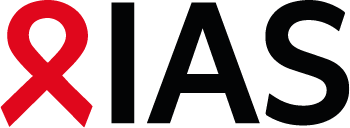Share Abstract
Telephonic support for people living with HIV who are not coping with ART during the COVID-19 pandemic: Lessons learned from Medécins Sans Frontièresâ?? response in South Africa
Abstract Content:
BACKGROUND: In 2018, Medécins Sans Frontières (MSF) and the Western Cape Department of Health implemented the â??Welcome Serviceâ? in a primary care clinic in Khayelitsha, South Africa. This is a differentiated service delivery model to support people living with HIV (PLHIV) who need additional support taking antiretroviral therapy (ART), including clients who are virally unsuppressed or have disengaged from care (missed appointments or adherence difficulty). The package included linkage to care, medical management and psychosocial support. COVID-19 magnified socioeconomic barriers to engagement and impacted healthcare delivery; urgent adaptation to the Welcome Service was required in response.
DESCRIPTION: MSF adapted the Welcome Service to support ART engagement despite additional challenges, as support for viral suppression is a necessary component of the COVID-19 response. To reduce facility visits, clinics extended ART refills from 1 up to 2 months at re-engagement or if virally unsuppressed. MSF supported clients with telephonic follow-up before their next face-to-face visit at two months: a nurse reviewed clientsâ?? symptoms and a counsellor provided psychosocial support.
LESSONS LEARNED: Telephonic consultations provided a safety net for PLHIV at the Welcome Service-supported clinic in April 2020 while intervals between clinic visits were prolonged: a counsellor provided psychosocial support and a nurse asked about concerning symptoms, such as features suggesting immune reconstitution and ART side effects, and advised if clients needed to return to the clinic earlier. Fifteen clients were contacted: 8 were receptive to telephonic consultations with staff able to establish rapport over the phone, 1 refused phone contact because of HIV non-disclosure to their family and the remaining 6 were unavailable telephonically. Fewer clients than usual re-engaged with ART services during the COVID-19 lockdown. Additionally, these services required access to phones, airtime, and revision of administrative procedures to keep client notes confidential outside work premises.
CONCLUSIONS: Timely adaptation of services to support engagement with ART was feasible with few structural changes. However, implementation and expansion may be limited by community acceptance of telephonic consultations, clientsâ?? availability telephonically, and access to phones, airtime and administrative procedures. Lessons could be applied to other public health concerns and inform the restructuring of healthcare services beyond the COVID-19 pandemic.
DESCRIPTION: MSF adapted the Welcome Service to support ART engagement despite additional challenges, as support for viral suppression is a necessary component of the COVID-19 response. To reduce facility visits, clinics extended ART refills from 1 up to 2 months at re-engagement or if virally unsuppressed. MSF supported clients with telephonic follow-up before their next face-to-face visit at two months: a nurse reviewed clientsâ?? symptoms and a counsellor provided psychosocial support.
LESSONS LEARNED: Telephonic consultations provided a safety net for PLHIV at the Welcome Service-supported clinic in April 2020 while intervals between clinic visits were prolonged: a counsellor provided psychosocial support and a nurse asked about concerning symptoms, such as features suggesting immune reconstitution and ART side effects, and advised if clients needed to return to the clinic earlier. Fifteen clients were contacted: 8 were receptive to telephonic consultations with staff able to establish rapport over the phone, 1 refused phone contact because of HIV non-disclosure to their family and the remaining 6 were unavailable telephonically. Fewer clients than usual re-engaged with ART services during the COVID-19 lockdown. Additionally, these services required access to phones, airtime, and revision of administrative procedures to keep client notes confidential outside work premises.
CONCLUSIONS: Timely adaptation of services to support engagement with ART was feasible with few structural changes. However, implementation and expansion may be limited by community acceptance of telephonic consultations, clientsâ?? availability telephonically, and access to phones, airtime and administrative procedures. Lessons could be applied to other public health concerns and inform the restructuring of healthcare services beyond the COVID-19 pandemic.
